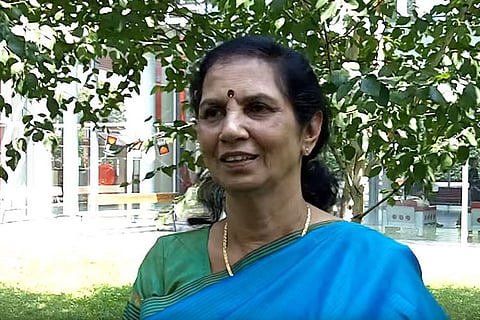

In 1986, Dr Suniti Solomon detected the first cases of AIDS in India. A visionary in the field of microbiology, a teacher and an activist, she has been posthumously awarded the Padma Shri by the government of India for her contribution to the field.
Dr Suniti was teaching microbiology at the Madras Medical college, when she coaxed one of her students to take up HIV and AIDS as a subject. “As a professor I asked one of my postgraduate students to do her PhD on the subject since there were no known cases in India,” she had said.
Her student had initially voiced concerns about finding people affected by HIV, but the duo was able to identify six sex workers in Chennai who were afflicted by it.
"We chose from people who had undergone multiple blood transfusions, went to remand homes where they had rounded up some sex workers and altogether tested a total of 100 people,” Dr Suniti told DNA in an interview in 2009..
Dr Suniti had trained in clinical pathology in Britain, the US and Australia, but had returned to India to work in a government hospital in 1973.
Not only did she work on the academic aspects of the case, Dr Suniti also noted how AIDS patients were shunned by society because of the disease, and worked to change this.
“The minute someone says he or she is HIV positive, the word which crops up in most people’s mind is ‘immoral’,” she was quoted as saying.
She has spoken about how her husband was apprehensive about the nature of her work too, and did not want her to interact with HIV-positive patients, “most of whom at that time were homosexuals, those who self-injected drugs and sex workers,” she had said.
Her attitude towards her patients and those affected was summed up in her response to her partner: “Look, you have to listen to their stories and you wouldn’t say the same thing.”
She established the YR Gaitonde Center for AIDS Research and Education in Chennai. The establishment was known to accept patients who were cast aside by other hospitals.
Known to be more than just a doctor, she was a counselor, teacher and even a matchmaker for her patients on occasions.
On July 28, 2015, the country lost the pioneer in the field of medicine. She was 76, and passed away in her home in Anna Nagar.